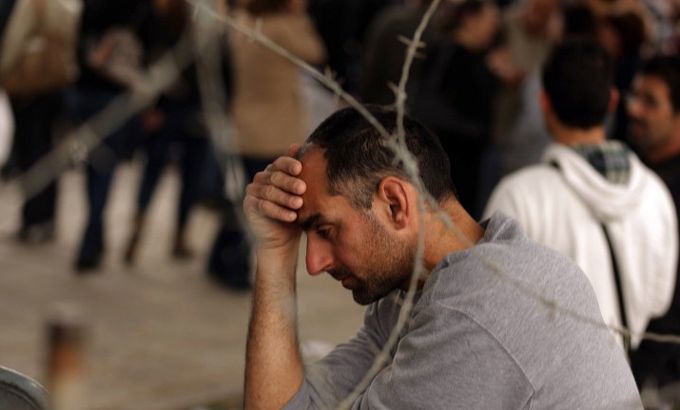Cypriot politicians meet over bank crisis
Parliament begins crucial debate amid protests and official warns “next few hours will determine” country’s future.

The Cypriot parliament has reconvened to debate a raft of government crisis measures after lawmakers adjourned a Thursday session saying they needed more time for consultation.
Friday’s session comes as finance minister Michael Sarris returnes home from Moscow after failing to win support in two days of crisis talks with Russian officials.
Keep reading
list of 4 itemsWhy are nations racing to buy weapons?
Parallel economy: How Russia is defying the West’s boycott
US House approves aid package worth billions for Ukraine, Israel
Sarris had sought to prolong a bailout loan or to secure a possible new financing package.
Cyprus is working on “Plan B” to raise $7.5bn demanded by the European Union in return for a $13b bailout from the EU and IMF.
“The next few hours will determine the future of the country,” Christos Stylianides, a government spokesman, said on Friday in a televised statement before parliament was due to debate the crisis measures proposed by the government.
“We must all assume our share of the responsibility,” he said.
Al Jazeera’s Peter Sharp, reporting from Nicosia, Cyprus’ capital, said among the bills legislators were considering was restructuring the country’s Laiki bank.
Bank workers protest
“If that bill was passed it would add more than $2bn to Cyprus’ contribution to the bailout fund,” he said.
“There is another bill that will also be examined today by lawmakers, which is toughening up the exchange control, currency regulations.”
Sharp also said that “more than 300 protesters, mostly employees from the Laiki bank who perceive that restructuring their bank means, in fact, destruction of the bank,” had taken to the streets in Nicosia.
“They are facing the loss of their jobs. They are a powerful lobby of 3,000 workers involved in the bank and many of them will be in the streets today.”
The EU gave Cyprus until Monday to raise the billions of dollars it needs to secure an international bailout or face a collapse of its financial system that could push it out of the euro currency zone.
In a sign it was at least preparing for the worst, the Cypriot government sought powers on Thursday to impose capital controls to stem a flood of funds leaving the island if there is no deal before banks reopen following this week’s shutdown.
The European Central Bank said it would cut off liquidity to Cypriot banks without a deal, and a senior EU official told the Reuters news agency the bloc was ready to see the island banished from the euro to contain damage to the wider European economy.
‘Bank robbery’
Cypriot lawmakers on Tuesday threw out a tax on deposits, calling the EU-backed proposal “bank robbery”.
After more talks on Thursday, the currency union’s finance ministers urged Cyprus to table a new proposal.
Trying to placate its lenders, the government proposed to parliament a “solidarity fund” that would bundle state assets, including future gas revenues, as the basis for an emergency bond issue, likened by JP Morgan to “a national fire sale”.
It also sought the power to impose capital controls on banks, a type of measure unseen since before the country joined the single currency bloc five years ago.
The European Central Bank, which has kept Cyprus’s banks operating with a liquidity lifeline, said the government had until Monday to get a deal in place, or funds would be cut off.
In Brussels, a senior European Union official told Reuters that an ECB withdrawal would mean Cyprus’s biggest banks being wound up, wiping out the large deposits it has sought to protect, and probably forcing the country to abandon the euro.
A day after expressing skepticism at the Cyprus government’s ‘solidarity fund’ proposal, Germany’s finance minister, Wolfgang Schaeuble, said on Friday that the country’s economic crisis could not be solved only by eurozone taxpayers.
He added that Cyprus bank creditors must share the burden.